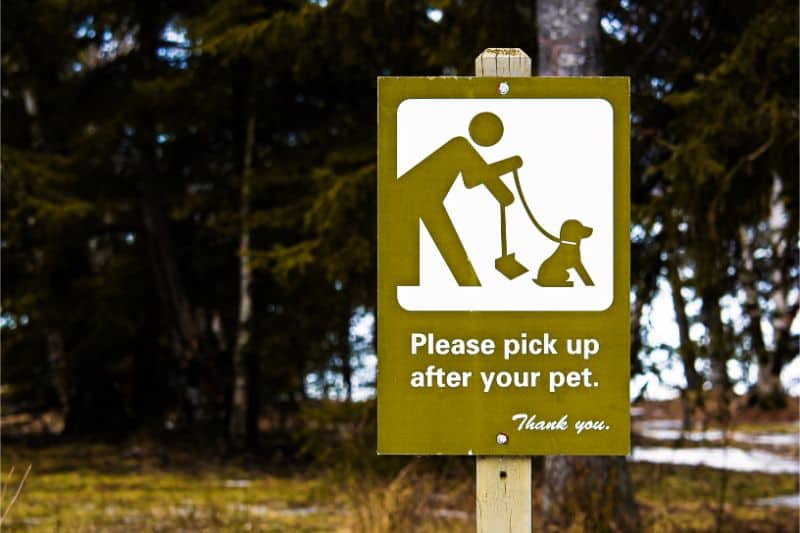Unappetizing? Yes. But Dog Poop Can Actually Make People Sick

Most etiquette experts agree that certain topics should never, ever be discussed at social gatherings. Religion and politics top the list, but a very close third would have to be bodily functions. When it comes to dog poop, however, the more people that do talk about it, the better.
While our motives are definitely connected to aesthetics and cleanliness, the fecal matter of our best friends can cause serious illness.
Close the Gap
A dog goes to the bathroom in their own backyard (if they have one), when they’re out on a walk with their owner, or when they’re let off-leash in designated areas. Sometimes, they even do it inside the house! No matter where it happens, dog owners generally do their best to pick it up and dispose of it properly.
Fortunately, the current trend at public parks help with this effort by stocking free waste bags and trash bins. Because it happens: the one time you forget a baggie, your dog drops a big one on the grass.
Zooming Out
While there are loads of conscientious owners out there that would go get a baggie and return to poop site, it’s equally common for poop to be left behind. Whether it’s on purpose or accidental, people often wonder why picking up dog poop is such a big deal?
Glad You Asked!
The Environmental Protection Agency (EPA) recognized dog poop as an environmental pollutant in 1991. Similar to the other products and chemicals in the same category, dog waste is known to be toxic to grass lawns. Contrary to popular belief, dog feces is not a good fertilizer and is responsible for discolored patches or burns on the lawn.
But the really frightening thing about canine waste goes far beyond aesthetics.
That’s A Lot!
Fecal coliform bacteria are responsible for contaminating waterways with E. Coli and other pathogens. Shockingly, one gram of dog waste can contain 23 million of these bacteria. If exposed, people can suffer from severe cramping, diarrhea, intestinal illness, and even kidney disorders.
What’s worse, dog poop is a common culprit for spreading the following diseases to humans:
- Cryptosporidiosis
- Salmonellosis
- Tapeworms
- Roundworms
- Hookworms
- Whipworms
- Parvo
- Corona
- Giardiasis
- Campylobacteriosis
Trouble With This
A zoonotic disease is one that’s passed from animals to people. Left alone, even a single pile of waste can contribute to a dangerously unhealthy cycle. Children are placed at higher risk because they put contaminated items or fingers into their mouths.
Also, ignored dog poop can negatively impact ponds, streams, lakes, rivers, and drinking water. Eventually, piles will break down, dilute, and drain into local water table.
The Truth About Dog Poop
One guarantee for every dog owner is that they’ll always have dog poop to pick up. A single dog poops an average of 14 times a week. While households with smaller breeds will have a smaller impact on the environment than large breeds, all pets can potentially spread disease to their human family members if they aren’t current with their parasite prevention medication and vaccinations.
If you have additional questions or concerns about dog poop and zoonotic diseases, please contact us at Rocklin Ranch Veterinary Hospital.

